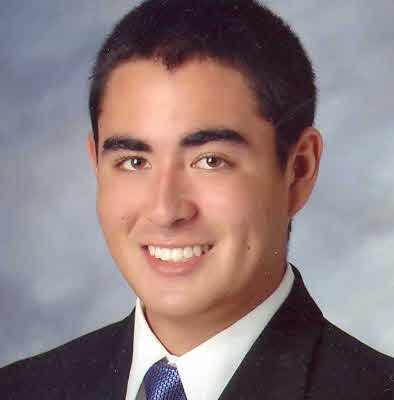The Boston College Career Center is hosting its annual Externship Program.
We are currently inviting employers in the Boston and New York areas who would be interested in hosting a student (or two or three) for a one-day job shadow experience during Winter Break. We would like to ask for your help in finding externship hosts who could provide Boston College students with a valuable career-related experience.The Externship Program is a one-day job-shadowing and mentoring experience during the week of January 9th-13th, 2012. By offering BC students the opportunity to participate in activities such as sitting in on staff meetings, observing client interactions, touring facilities, and conducting informational interviews, you help the student gain invaluable insights that could aid them in discerning their future career path.
If you are interested in participating, please visit our website for more details about the program and the application process. If you have any questions or know of other Boston College Alumni who may be interested in participating in the program, feel free to contact Gopi Dhokai at externship.employer@bc.edu.
Please note that the deadline for Externship Host applications is Friday, October 28, 2011.
If you are interested in participating, please visit our website for more details about the program and the application process. If you have any questions or know of other Boston College Alumni who may be interested in participating in the program, feel free to contact Gopi Dhokai at externship.employer@bc.edu.
Please note that the deadline for Externship Host applications is Friday, October 28, 2011.
--------------------------------
Belize Study Abroad
The deadline for our great winter courses is October 31st. Some of those courses are beginning to fill up, so please let Cynthia Reece, our Program Manager, know if you are interested, creece@isisbelize.com.
Application forms and complete information can be found on our website,
http://www.isisbelize.com/apply-now/download-forms.html, or http://www.isisbelize.com/winter-courses-2011.html.
Summer programs application deadline is March 1, 2012. There is still time to apply for the Gilman International Scholarship for summer, http://exchanges.state.gov/globalexchanges/gilman-scholarship-program.html. We look forward to welcoming you to Belize, where education is an
adventure.
The deadline for our great winter courses is October 31st. Some of those courses are beginning to fill up, so please let Cynthia Reece, our Program Manager, know if you are interested, creece@isisbelize.com.
Application forms and complete information can be found on our website,
http://www.isisbelize.com/apply-now/download-forms.html, or http://www.isisbelize.com/winter-courses-2011.html.
Summer programs application deadline is March 1, 2012. There is still time to apply for the Gilman International Scholarship for summer, http://exchanges.state.gov/globalexchanges/gilman-scholarship-program.html. We look forward to welcoming you to Belize, where education is an
adventure.
----------------------------------------
Growing Green
Majora Carter, eco-entrepreneur and president of Majora Carter Group
On Wednesday, November 2, the Museum of Science will be hosting Peabody Award-winning broadcaster and MacArthur "genius" fellow Majora Carter. A pioneer of “green-collar” jobs and local eco-entrepreneurship, Ms. Carter will share her innovative ideas about the role sustainability should play in modern urban planning and her groundbreaking food distribution systems that improve public health and build economic opportunities in neighborhoods across America.
Wednesday, November 2; 7:00 p.m.
Admission $15
Health Hero. Prophet of Local. Eco-Industrial Strategist. Economic Pioneer. Intrepid Boundary Breaker. These all apply to one person—Peabody Award-winning radio broadcaster and MacArthur “genius” fellow Majora Carter.
Tickets on sale beginning Thursday, September 1 (Tuesday, August 30 for Museum members). Purchase tickets in advance at mos.org/events
-------------------------------------
Whole Terrain, Antioch University New England's journal of reflective environmental practice.
Position: Development/Communications Intern
EnvironMentors National Office, Washington, DC
EnvironMentors (EM) seeks a creative and committed individual for a part-time (10 hours/week) Marketing and Communications internship. The ideal candidate will have experience and skills in Internet research, writing and communications, program administration, and maintaining a sophisticated internal social networking website. The position will include working as part of a national office team located in Washington, DC and Boulder, CO, as well as with Directors and Coordinators at 13 university-based chapters nationwide. The position’s primary emphasis is to assist with fundraising, communications research/development, maintain/update “EnvironMentors Online Community,” with occasional program support for EM’s university-based chapters.
To apply:
Send resume and cover letter to:
Jessica Soule
Subject/Attn: EM Intern Application
Electronically to: jsoule@ncseonline.org
Or via fax: 202-628-4311
-----------------------------------------------
The Maine Humanities Council has awarded the Kennebunkport Conservation Trust a $1000 grant for a community outreach project to help Maine historical societies and the general public learn about and interpret early tide mills in their area.
Working in collaboration with the Tide Mill Institute, the Trust will hold a conference November 18 and 19th at its headquarters in Kennebunkport, where tide mill historians from Europe and from Maine will present the heritage and technology of this example of the use of tidal power. One presentation will lay out legal issues that affected early tide mills and confront those seeking to make use of tidal energy today. An open forum will allow Maine’s coastal historical societies to share information and to study the tide mills that existed in their back yards. Participants will also have the opportunity to hear about and see first-hand the current archaeological work being done by the Trust at its 1740’s James Perkins tide mill site in Kennebunkport.
An informal reception will be held at the Trust’s headquarters in Kennebunkport from 6 to 8 PM Friday evening November 18, where displays and video presentation about tide mills can be viewed. Saturday's activities start with registration at 8:30AM; presentations begin at nine o'clock. There is a $20 conference fee. For more information contact Bud Warren at budw@myfairpoint.net (373-1209) or Lisa Lassey at lisa@kctofficd.com.



